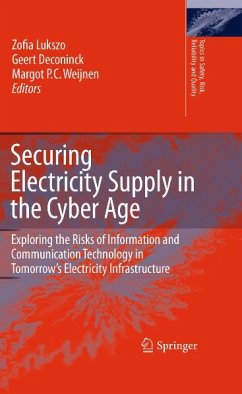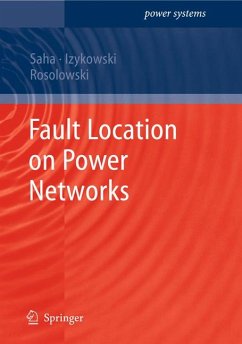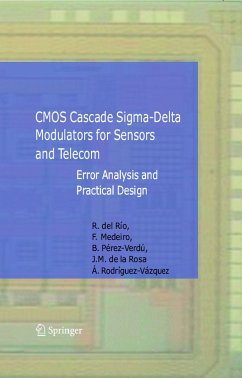
Securing Electricity Supply in the Cyber Age (eBook, PDF)
Exploring the Risks of Information and Communication Technology in Tomorrow's Electricity Infrastructure
Redaktion: Lukszo, Zofia; Weijnen, Margot P. C.; Deconinck, Geert
Versandkostenfrei!
Sofort per Download lieferbar
72,95 €
inkl. MwSt.
Weitere Ausgaben:

PAYBACK Punkte
36 °P sammeln!
Margot P. C. Weijnen, Zofia Lukszo and Geert Deconinck Abstract The infrastructures for electric power and information and telecommunication services are critical enablers for all economic activity. Both of these infrastructure systems evolved over time as networks-of-networks in an institutionally fr- mented landscape. In understanding and steering the emergent behaviour of these infrastructure systems both their physical network complexity and their social n- work complexity pose a formidable challenge. On top of the socio-technical c- plexity of the electricity infrastructure and the inform...
Margot P. C. Weijnen, Zofia Lukszo and Geert Deconinck Abstract The infrastructures for electric power and information and telecommunication services are critical enablers for all economic activity. Both of these infrastructure systems evolved over time as networks-of-networks in an institutionally fr- mented landscape. In understanding and steering the emergent behaviour of these infrastructure systems both their physical network complexity and their social n- work complexity pose a formidable challenge. On top of the socio-technical c- plexity of the electricity infrastructure and the information and telecommunication infrastructure as such, the two infrastructure systems show unprecedented mutual interdependency. Unravelling this multi-level interdependency and identifying strategies to curb the new risks and vulnerabilities it implies for the reliability of electric power services is the goal of this book. It clearly shows that technical so- tions alone will not suffice to ensure the future reliability and security of electricity infrastructure operations. Keywords Cybersecurity . infrastructure vulnerability . infrastructure depend- cies . power systems 1. 1 Infrastructures Are Critical Infrastructures are the backbone of the economy and society. Especially the network bound infrastructures operated by public utilities and network industries provide essential services that are enabling for almost every economic and social activity. M. P. C. Weijnen (*) and Z. Lukszo Technology Policy and Management, Delft University of Technology, P. O. Box 5015, 2600 GA Delft, The Netherlands e-mail: M. P. C. Weijnen@tudelft. nl; Z. Lukszo@tudelft. nl G. Deconinck K. U.
Dieser Download kann aus rechtlichen Gründen nur mit Rechnungsadresse in A, B, BG, CY, CZ, D, DK, EW, E, FIN, F, GR, HR, H, IRL, I, LT, L, LR, M, NL, PL, P, R, S, SLO, SK ausgeliefert werden.













